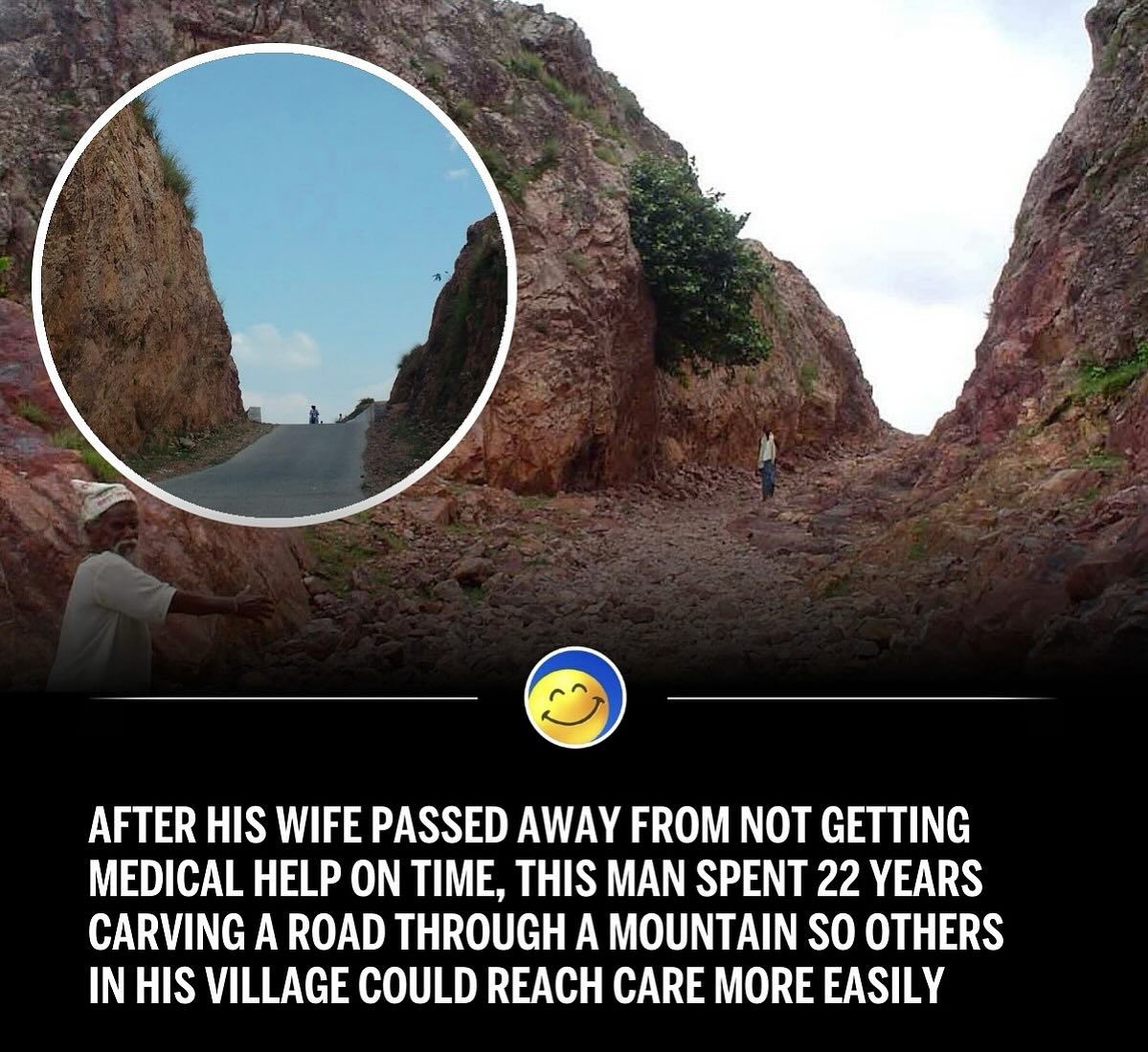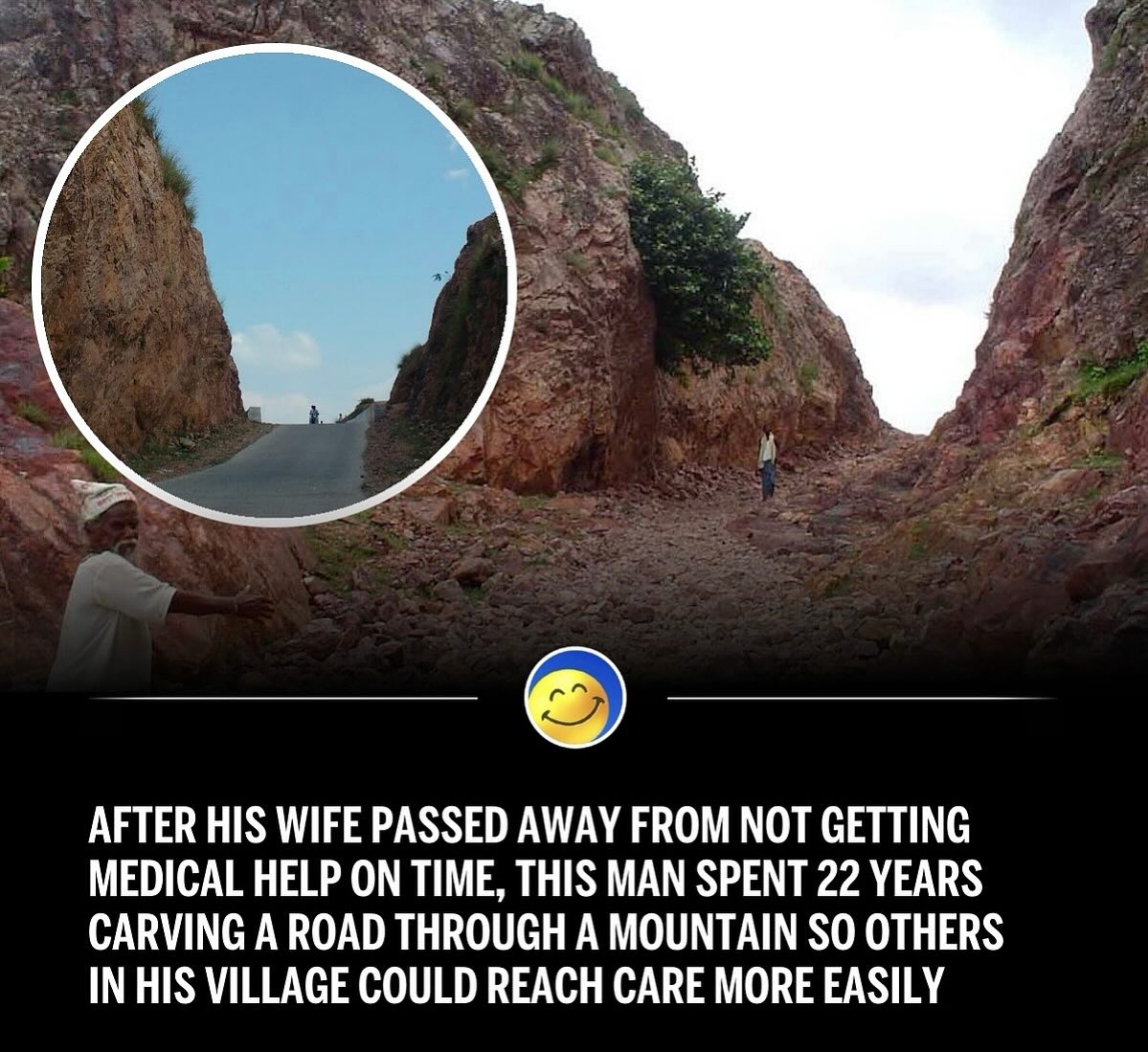In 1959, a personal tragedy set Dashrath Manjhi, a laborer from Gehlaur village in Bihar, India, on an extraordinary path. After his wife, Falguni Devi, died from a lack of timely medical care—her access to the nearest hospital blocked by a mountain and 55 kilometers of travel—Manjhi resolved to change the future for others in his village.
In 1960, armed with nothing more than a hammer and chisel, he began carving a road through the rocky terrain. Over the course of 22 years, he single-handedly cut a passage 110 meters long, 9.1 meters wide, and 7.7 meters deep, reducing the distance to essential services from 55 kilometers to just 15.
Initially dismissed and mocked by fellow villagers, Manjhi’s effort eventually drew support and national admiration. He became known as India’s “Mountain Man,” a symbol of determination and perseverance. Following his death in 2007, the Bihar government granted him a state funeral and later paved the road he had built.
His life was later adapted into the 2015 biographical film Manjhi – The Mountain Man, starring Nawazuddin Siddiqui, bringing renewed attention to a legacy shaped by grief, grit, and unrelenting resolve.

